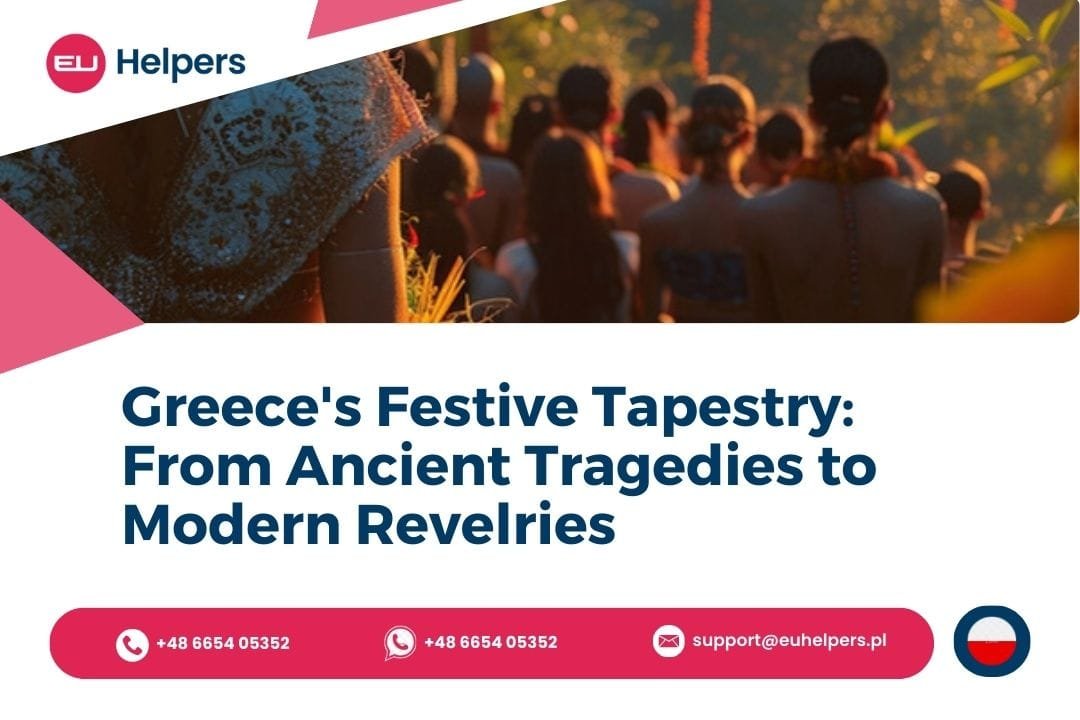For centuries, Greeks have embraced festivities, dating back to the inception of Western civilization. Consider Epicurus, who devoted himself to pursuing pleasure, shaping what's now termed Epicureanism. While journeying through Greece, you'll encounter widespread religious observances, primarily within the Greek Orthodox tradition, along with smaller, localized celebrations specific to certain regions or islands. These events are marked by feasting, revelry, dance, and music, often echoing the customs of ancient Greece. The only lamentable aspect is the inability to attend every festival.
1. Orthodox Easter:
In Greece, Holy Week stands as the pinnacle of the year, marked by diverse Orthodox customs each day. Holy Thursday witnesses the baking of traditional Easter bread, tsoureki, typically adorned with a red egg at its center. Holy Friday is a solemn day, with church bells tolling mournfully, while as Holy Saturday dawns, churches illuminate with candlelight as people chant 'Christos Anesti' – 'Christ rises.'
2. Epiphany:
Annually in Athens, the ancient port of Piraeus hosts a remarkable celebration of this religious day. A local priest casts a crucifix into the sea, where young men brave the cold waters to retrieve it. This ritual echoes across Greece, enacted in small villages and on islands. While the ceremony is deeply rooted in local tradition, tourists are encouraged to observe and partake in this unique event.
3. Epidaurus:
This festival offers a unique opportunity to witness the timeless classics of Greek drama performed in their authentic setting – an ancient theater. With shows scheduled every Friday and Saturday night throughout the festival, attendees have ample chances to experience Greek tragedies as they were originally intended.
4. Aegina Pistachio Festival:
In Aegina, pistachios reign supreme. The island is adorned with pistachio orchards, and the sale of these vibrant nuts is essential to the local economy. Hence, it's only fitting that Aegina hosts a festival dedicated solely to honoring them at the close of the harvest season in September. After indulging in a variety of pistachio-infused dishes and desserts, visitors can explore numerous market vendors or enjoy live performances.
5. Ifestia Festival (Volcano Festival) Santorini:
In stunning Santorini, it's not just romance that ignites passions. The annual Ifestia Festival, held every September, pays homage to the volcano that sculpted Santorini's iconic landscape following its eruption in 1646 BC.
This explosion, estimated to be 100 times more powerful than Vesuvius' eruption that engulfed Pompeii, is commemorated with live music and a breathtaking fireworks extravaganza emanating from the volcano. The display, complete with sound and light effects mimicking lava flows and explosions, captivates attendees.
6. The Carnival of Corfu:
Corfu's Carnival celebration bears resemblance to the famed Carnival of Venice, believed to have originated when Venetians conquered the island in the 13th century. Spanning from February into March, the festival is a vibrant affair on the island.
Colorful parades and lavish feasts abound, as locals don masks and don traditional Venetian attire. Culminating in the Great Parade, a float symbolizing the King of Carnival, purportedly laden with the locals' sins, is set ablaze amidst a jubilant street revelry.
7. The Athens Marathon:
Taking place in November, the Athens Marathon commemorates the legendary Greek tale from which the marathon race derives its name. According to legend, Pheidippides, a Greek soldier and courier, purportedly ran from the Battle of Marathon to Athens to relay news of the Greek triumph over the Persians.
It's said that he covered the approximately 40 kilometers without pause, only succumbing to exhaustion and perishing after delivering the message to the Athenians

